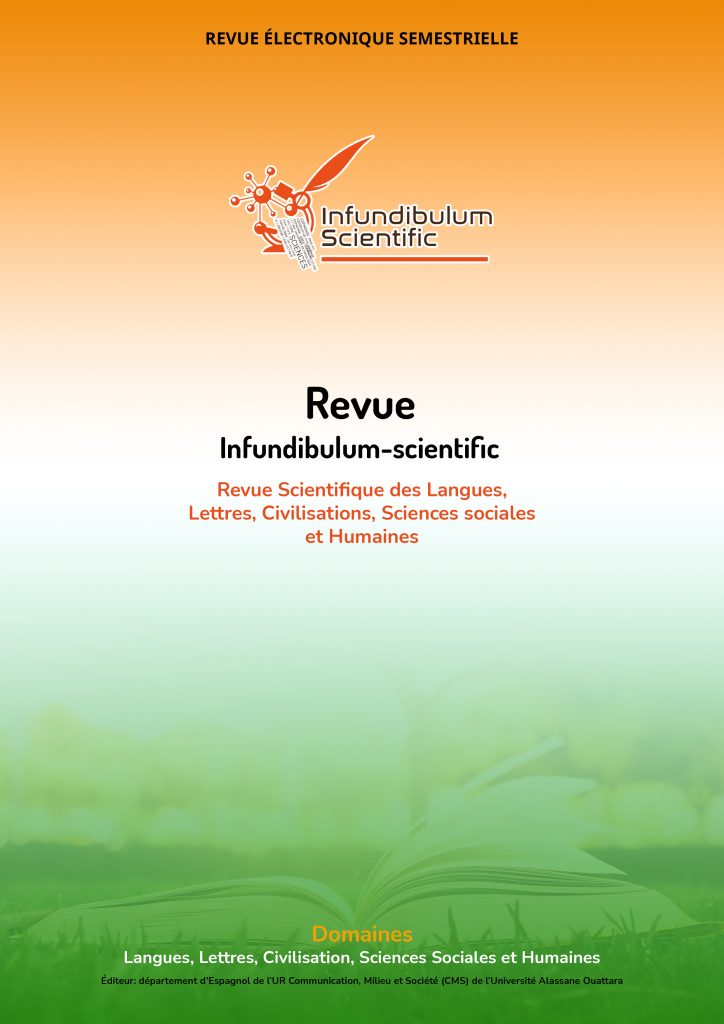“LE SOUMBARA1ˮ, ÉPICE DANS LA CUISINE EN PAYS SENOUFO : UNE ÉTUDE DE LA CONSOMMATION REGULIÈRE ET LES FONCTIONS ASSOCIÉES
Résumé
Le présent travail se propose d’étudier, du point de vue de la socio-anthropologie, les déterminants de la consommation régulière du ‘’Soumbara’’ chez les senoufo, et les fonctions associées. La démarche méthodologique suivie s’articule autour de la recherche documentaire et les travaux de terrain. Un échantillon de 105 personnes dont 30 adultes (15 femmes et 15 hommes), 34 personnes du troisième âge, 30 femmes enceintes, 01 médecin nutritionniste et 10 autres personnes non Senoufo trafiquantes de l’épice ont été interviewées pour fournir des données relatives aux fonctions sociales et symboliques du “Soumbara’’ chez les Senoufo. A partir d’une approche à la fois quantitative et qualitative centrée respectivement sur un questionnaire et des entretiens libres, des focus group et l’observation directe, les résultats de l’enquête indiquent que la consommation du ‘’Soumbara’’ guérit l’anémie chez les enfants, les femmes enceintes et la faiblesse sexuelle chez les personnes âgées. Aussi le “Soumbara’’ remplit-il des fonctions sociales et symboliques. Il s’agit de la présence permanente de cette épice dans les mets traditionnels et funéraires, d’une part ; et la vénération des dieux “condrho ‘’ et “nacontcha’’ par l’offrande d’animaux et de condiments de cuisine et du “soumbara’’, d’autre part.
Abstract
The present work proposes to study, from the point of view of socio-anthropology, the determinants of regular consumption of « Soumbara » among the Senufo, and the associated functions. The methodological approach followed is based on documentary research and fieldwork. A sample of 105 people, including 30 adults (15 women and 15 men), 34 elderly people, 30 pregnant women, 1 nutritionist and 10 other non-Senoufo people who deal in the spice were interviewed to provide data on the social and symbolic functions of « Soumbara » among the Senoufo. Using both a quantitative and qualitative approach based respectively on a questionnaire and open-ended interviews, focus groups, and direct observation, the results of the survey indicate that the consumption of « Soumbara » cures anemia in children, pregnant women, and sexual weakness in the elderly. Soumbara also fulfills social and symbolic functions. It is the permanent presence of this spice in traditional and funerary dishes, on the one hand; and the veneration of the gods « condrho » and « nacontcha » by the offering of animals and kitchen condiments and « soumbara », on the other hand.

